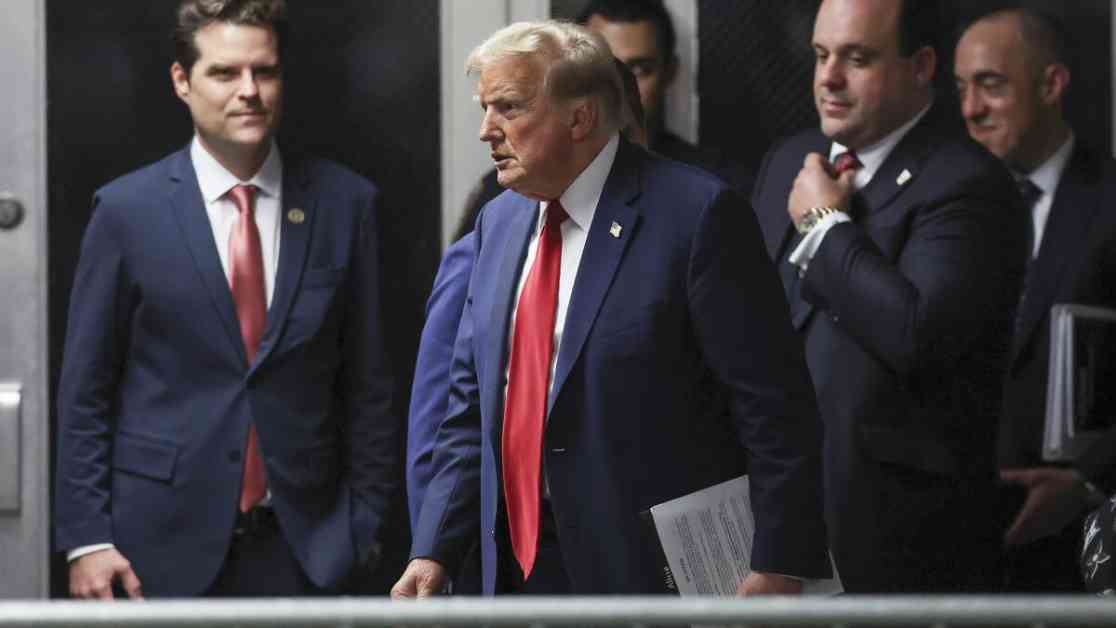President-elect Donald Trump’s Cabinet picks have been a topic of controversy, with individuals like Matt Gaetz, Pete Hegseth, Tulsi Gabbard, and Robert F. Kennedy Jr. being questioned for their qualifications. These nominees have been criticized for their loyalty to Trump rather than their expertise in their respective fields. However, the real concern lies in the power grab that these nominees represent.
Matt Gaetz, Trump’s pick for attorney general, has made promises to remove any obstacles in Trump’s way within the Justice Department and FBI. Pete Hegseth, a potential Defense secretary, has expressed views against military officers promoting diversity. Tulsi Gabbard, considered for director of National Intelligence, has raised concerns with her stance on foreign policy. Robert F. Kennedy Jr., nominated for Health and Human Services, has plans to make significant changes on day one.
These nominees align with Trump’s goal of centralizing power under his administration and dismantling the existing bureaucracy. Trump has been vocal about his desire to weaken the checks and balances that limit his authority as president. His past conflicts with Cabinet officials and attempts to extend his influence highlight his intentions to concentrate power within his administration.
In addition to his Cabinet picks, Trump has proposed reforms that would give him more control over the executive branch. He aims to make all federal employees susceptible to dismissal by the president, undermining their independence. Trump also plans to challenge Congress’ authority on federal spending by impounding funds for programs he opposes. These actions could have far-reaching implications on government operations and decision-making processes.
Furthermore, Trump’s willingness to bypass traditional confirmation processes for his nominees raises concerns about the separation of powers. By threatening to use recess appointments and other unconventional methods, Trump challenges the Senate’s role in the appointment process. This disregard for established norms and procedures poses a threat to the balance of power envisioned by the Constitution.
As these controversial nominations undergo scrutiny in the Senate, the future of key government agencies hangs in the balance. Beyond individual qualifications, the confirmation of these nominees will determine the extent to which Trump can reshape the executive branch to suit his agenda. The implications of these decisions go beyond partisan politics and speak to the fundamental principles of governance in the United States.
In conclusion, the confirmation process for Trump’s Cabinet picks is not just a formality but a crucial safeguard against executive overreach. The Senate’s role in vetting these nominees is essential to upholding the principles of democracy and preserving the balance of power between branches of government. The outcome of these nominations will have lasting implications for the functioning of the federal government and the integrity of the political system as a whole.



























